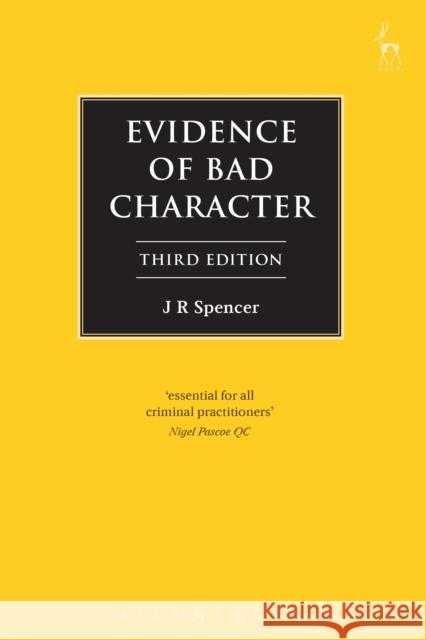Evidence of Bad Character » książka
Evidence of Bad Character
ISBN-13: 9781509900046 / Angielski / Miękka / 2016 / 384 str.
This is the third edition of John Spencer's now well established book which seeks to explain this complex area of law for the benefit of judges, criminal practitioners and academics teaching the law of evidence. In the past, the rule excluding evidence of the defendant's general bad character and disposition to commit the offence was sometimes described as one of the most hallowed rules of evidence; Lord Sankey, in Maxwell v DPP, referred to it as '...one of the most deeply rooted and jealously guarded principles of our criminal law.' In reality it was not particularly ancient, and in recent years was increasingly attacked. On technical grounds the body of law surrounding it was criticised as over-complicated and inconsistent, and more radical critics condemned it as unduly favourable to the guilty. In response to this, the law was completely recast in Part II of the Criminal Justice Act 2003. This book, now updated to take into account a raft of new cases, offers a thorough analysis of the bad character provisions of the Criminal Justice Act 2003 in the light of the way in which they have been interpreted by the courts. *** "Essential for all criminal practitioners" --Nigel Pascoe QC *** "An outstanding account of a difficult topic in the law of evidence." --Professor Andrew Choo, University of Warwick *** "Spencer has a certain genius when it comes to bringing concision and clarity to material which others would most probably render lengthy and difficult...an essential starting point for getting to grips with bad character evidence." --Jonathan Rogers, Criminal Law Review (Series: Criminal Law Library, Vol. 2) Subject: Criminal Law, Evidence, Proof and Process]











